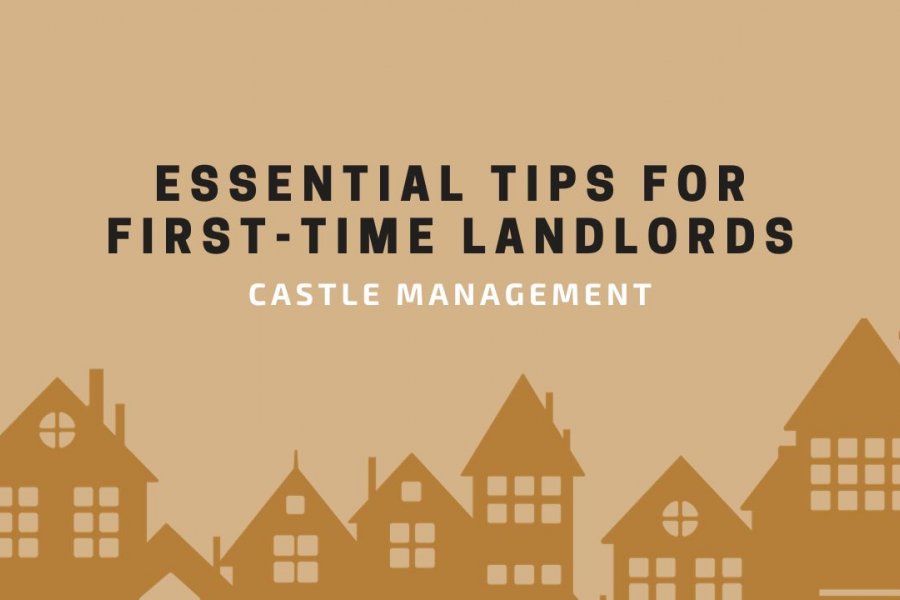
Starting out as a landlord, especially with renting multi-family properties, is not just an opportunity for financial growth, but also a big step that comes with its own set of challenges. Real estate investors should understand and learn to navigate the complexities of rental investments to be successful landlords.
This guide aims to provide you with the knowledge and tools needed for effective rental property ownership, helping you avoid common mistakes and adopt best practices. Whether you're about to buy your first rental property or have just stepped into the multi-family property market, this guide will provide valuable insights to help you manage your investment successfully.
Let's explore how to manage rental properties in a way that maximizes your return on investment and sets you up for success.
Understand the Market
- Market Research: Before investing, conduct thorough market research. Understand the demand for rental properties in your area, focusing on factors like employment rates, population growth, and local amenities. Research comparable rentals in the area to set competitive prices.
- Location Analysis: Location is key in real estate. Look for properties in areas with low vacancy rates and high rental demand, such as near universities, hospitals, or business districts.

Financial Management
- Budgeting and Financing: Be clear about your budget and financing options. Understand the different loan types available for multi-family properties and choose one that aligns with your financial capabilities and investment goals.
- Cash Flow Analysis: Calculate your expected cash flow, considering mortgage payments, property taxes, insurance, maintenance, and potential vacancy periods. Positive cash flow is crucial for a successful investment.
- Reserve Funds: Always maintain a reserve fund for unexpected expenses like emergency repairs, vacancies, or changes in the market conditions.
Property Management
- Effective Tenant Screening: Develop a rigorous tenant screening process. This includes credit checks, employment verification, and reference checks. Reliable tenants reduce the risk of rent defaults and property damage.
- Legal Compliance: Familiarize yourself with landlord-tenant laws in your state, including fair housing regulations, eviction procedures, and security deposit laws.
- Regular Maintenance and Inspections: Schedule regular property inspections and perform necessary maintenance as quickly as possible. This not only keeps tenants happy but also preserves the value of your property.
- Professional Property Management: If managing the property yourself seems overwhelming, consider hiring a professional property management company. They will handle tenant relations, maintenance, rent collection, and dealing with potential legal issues.

Relationship Building
- Establish Clear Communication: Effective communication with tenants is vital for building a positive landlord-tenant relationship. Be approachable, respond promptly to tenant concerns, and establish clear lines of communication.
- Networking: Network with other landlords, real estate agents, and professionals in the property management industry. They can provide valuable insights, advice, and potential business opportunities.
Investment Strategies
- Long-term Perspective: Real estate investment is typically a long-term commitment. Be patient and focus on long-term gains rather than quick profits.
- Diversification: Consider diversifying your investment portfolio over time by investing in different types of properties or in different geographical areas to spread risk.
- Continuous Education: Stay informed about the latest trends and developments in the real estate market. Attend seminars, join real estate investment groups, and read relevant literature.
Risk Management
- Insurance Coverage: Get adequate insurance coverage for your property to protect against unforeseen events like natural disasters, property damage, or liability claims.
- Contingency Planning: Have a contingency plan for potential challenges, such as changes in the real estate market, increases in property taxes, or significant repair needs.
Exit Strategy
Have a clear exit strategy in place. This could include selling the property, refinancing, or passing it on to a family member. Understanding your end goal helps in making informed decisions throughout your investment journey.

Additional Tips and Other Things You Need to Know
- Create a Bookkeeping Process: Your rental property is a business, so you should treat it like one by maintaining accurate records of income and expenses. Good bookkeeping helps manage your finances effectively and simplifies tax filing.
- Get Everything in Writing: Use detailed, legally sound leases that clearly outline all policies, including those for late rent, subletting, pets, and noise complaints.
- Plan for Taxes: Consult a tax advisor to understand your obligations. Rent payments are income, and maintenance costs are expenses. You may need to pay estimated taxes quarterly.
- Know the Housing Laws: Be familiar with local housing laws and tenant rights. Apply for necessary certifications, like a Certificate of Occupancy, and ensure you’re complying properly.
- Establish Business Hours: Set specific business hours for handling rental matters, aside from emergencies. This helps maintain a work-life balance and sets clear expectations with tenants.
- Avoid Renting to Family and Friends: To maintain professionalism and boundaries, rent to people outside your personal network.
- Screen Your Tenants Thoroughly: Conduct credit, employment, criminal, and eviction checks to ensure financial responsibility and reliability.
- Manage Expectations About Profits: Understand that initial profits may be low, especially if you have a mortgage. Focus on building equity over time.

- Clearly Outline Lease Violations: Define the consequences for lease violations in the lease agreement, including processes for warnings, fines, or evictions.
- Document Property Condition: Take before and after photos of the property to record its condition and any damages during each tenancy.
- Find a Reliable Maintenance Professional: Have a trusted person for timely repairs and maintenance, which keeps tenants satisfied and preserves property value.
- Consider Installing Hardwood Flooring: Hardwood floors are durable, easy to clean, and can enhance property value.
- Decide on a Pet Policy: Establish clear rules regarding pets on your property, as this can affect maintenance and tenant satisfaction.
- Prepare for Vacancies: Have a financial plan for periods without tenants, such as a contingency fund.
Bottom Line
Becoming a successful landlord in the multi-family property sector requires careful planning, strong financial management, and effective property oversight. Keeping detailed records of all rental documents is essential for legal compliance, dispute resolution, and smooth operations. Success also comes from staying adaptable and continuously learning to navigate the ever-changing rental market.
By following these essential tips and continuously educating yourself, you can create a sustainable and profitable rental property business. Remember, real estate investment is not just about owning properties; it's about strategic management and making informed decisions that lead to long-term success.
Contact Castle Management if you need help, and we will be happy to assist you!
